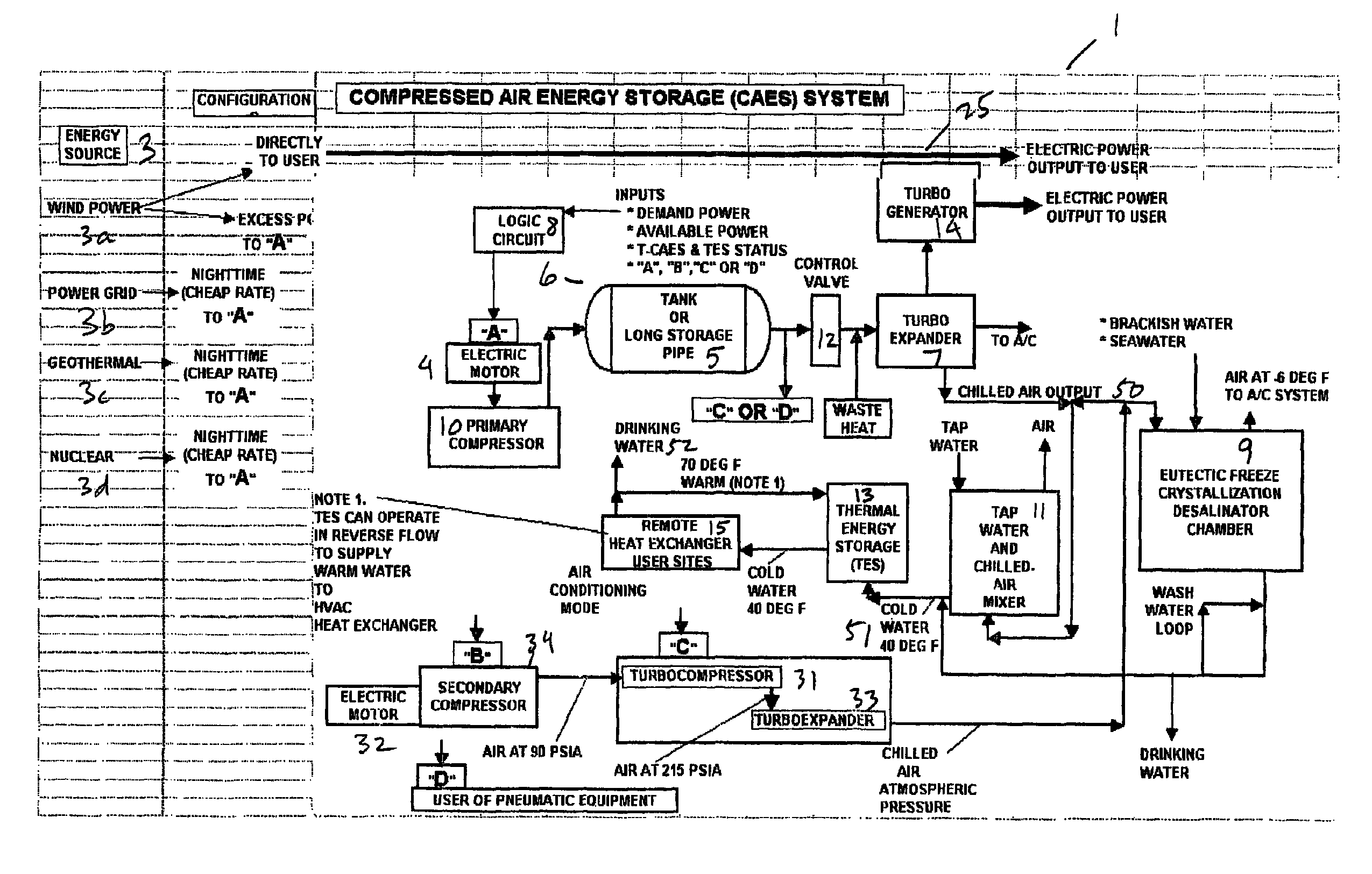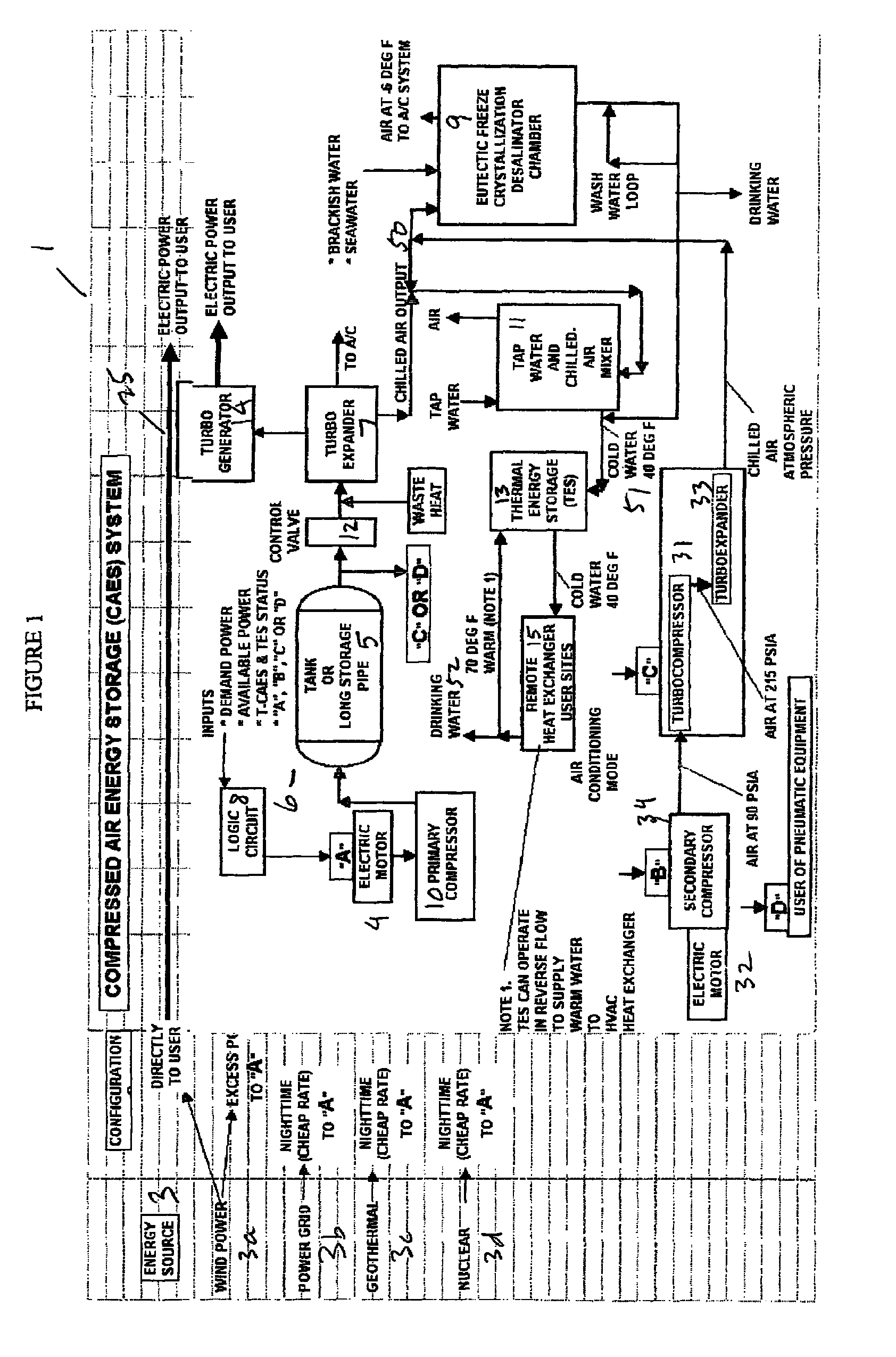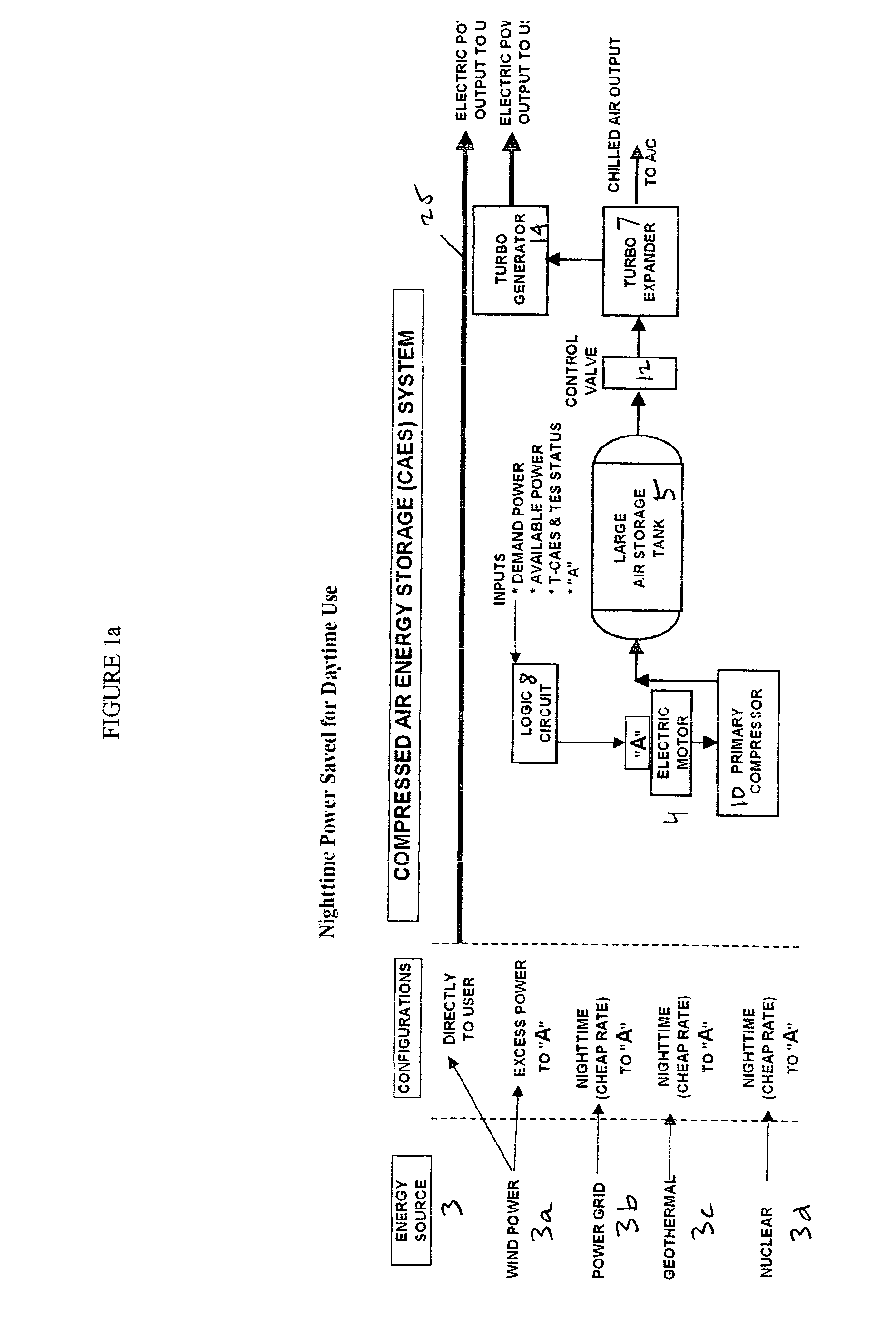Thermal energy storage system using compressed air energy and/or chilled water from desalination processes
a technology of desalination process and energy storage system, which is applied in the direction of separation process, lighting and heating apparatus, domestic cooling apparatus, etc., can solve the problems of increasing energy rates during those hours, affecting the efficiency of the home or business, and a significant portion of the energy cost to be dedicated
- Summary
- Abstract
- Description
- Claims
- Application Information
AI Technical Summary
Benefits of technology
Problems solved by technology
Method used
Image
Examples
Embodiment Construction
[0050]1. System Components:
[0051]FIG. 1 is a schematic diagram showing a universal embodiment that contains all components and features for all scenarios in a single system 1. Generally speaking, it contains an energy source 3, a primary compressor 10, a compressed air energy storage tank 5, a turbo expander 7 for releasing the compressed air, a turbo generator 14 for generating electricity using the compressed air, a desalination system 9 for using the chilled air generated by the turbo expander to produce chilled fresh water, a mixing chamber 11 for using the chilled air to produce chilled water, a thermal energy storage unit 13 with separation tank for storing the chilled water, and an air conditioning system 15 that uses the chilled water to produce chilled air for cooling. There can also be a secondary compressor 34, additional heat exchangers, etc.
[0052]The major system components consist of the following:[0053]Energy Source[0054]Compressed Air Energy Storage System[0055]Turbo...
PUM
| Property | Measurement | Unit |
|---|---|---|
| equilibrium temperature | aaaaa | aaaaa |
| energy | aaaaa | aaaaa |
| wind energy | aaaaa | aaaaa |
Abstract
Description
Claims
Application Information
 Login to View More
Login to View More - R&D
- Intellectual Property
- Life Sciences
- Materials
- Tech Scout
- Unparalleled Data Quality
- Higher Quality Content
- 60% Fewer Hallucinations
Browse by: Latest US Patents, China's latest patents, Technical Efficacy Thesaurus, Application Domain, Technology Topic, Popular Technical Reports.
© 2025 PatSnap. All rights reserved.Legal|Privacy policy|Modern Slavery Act Transparency Statement|Sitemap|About US| Contact US: help@patsnap.com



